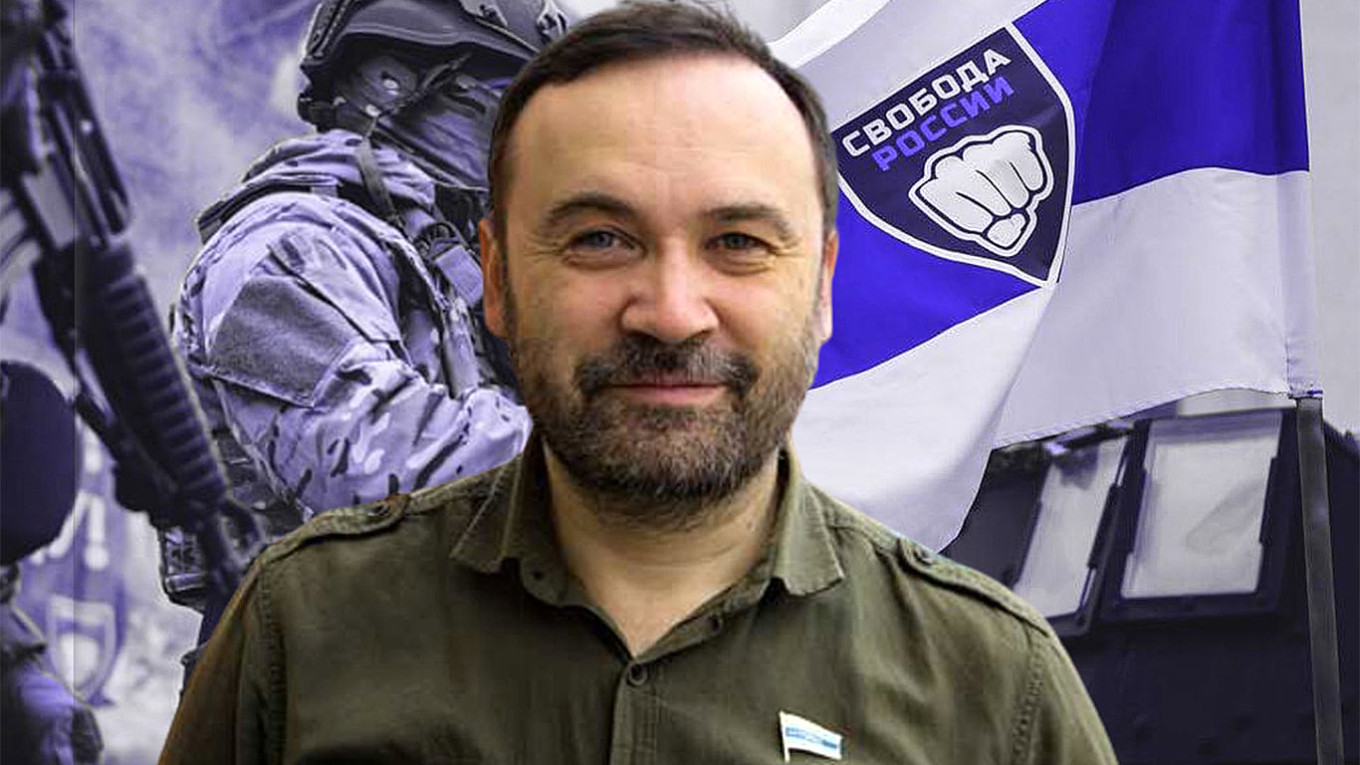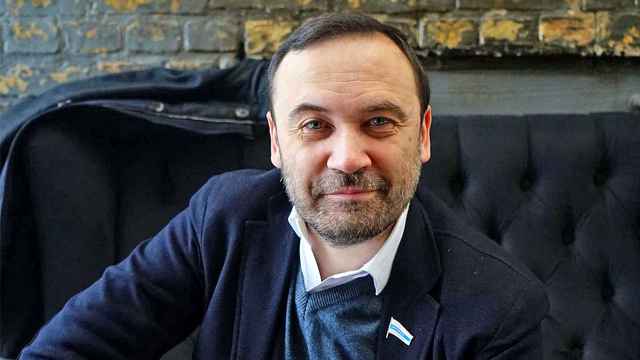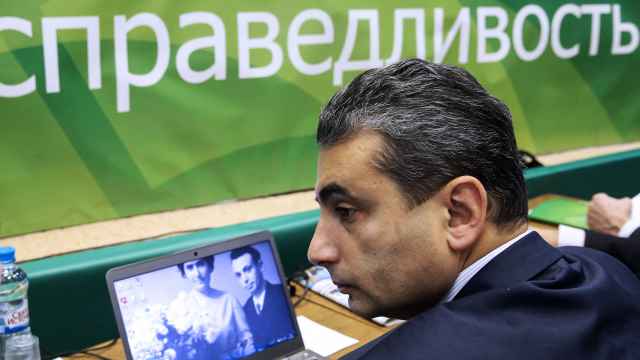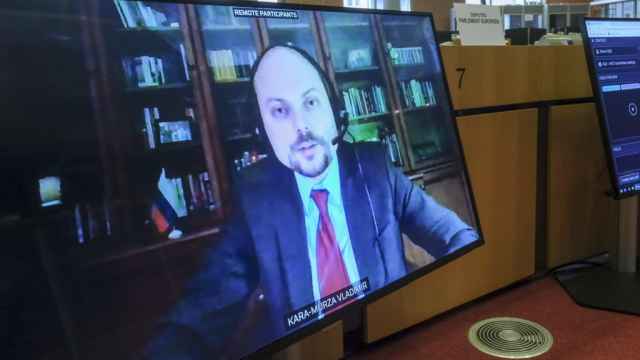Ilya Ponomaryov is a self-styled leader of the new Russia. Yet, when asked whether he cares about his legitimacy on the ground, his response is simple: “I don’t give a f***.” This approach is not unique to Ponomaryov — and the West needs to be careful to not lend support to actors who hide their callousness behind lofty ideals of “decolonization.”
Since the Kremlin’s full-scale invasion of Ukraine, the calls for “decolonizing” Russia in one way or another have become fashionable in Western discourse. These calls are featured on the pages of major papers. They echo in conferences, town squares, parliaments and on social media. The U.S. Commission on Security and Cooperation in Europe even identified decolonizing Russia as a “moral and strategic imperative.”
One of the faces of such calls is Ponomaryov, recently profiled by The Washington Post in an article, provocatively titled “Can this man bring down Putin,” (later changed to a tamer headline). He gained further notoriety in The Express, who called him, “Russia's resistance leader,” a man who “gives Vladimir Putin nightmares.” In reality, Ponomaryov is unlikely to do either of these things.
Ponomaryov is a man with a questionable past. He was reportedly a willing participant in building Russia’s surveillance state before defecting to Ukraine and re-emerging as a shady businessman and self-proclaimed leader of Russia’s anti-Putin resistance.
Whether or not the anti-war movement wants anything to do with Ponomaryov doesn’t seem to concern him.
In a typical example of his work, Ponomaryov announced a round table in August with active-duty soldiers to start up a center of “militant resistance to the Kremlin.” The idea fizzled out after one of the headliners tweeted that he had no idea that he was supposed to speak there. Other militants also denounced him at the time.
Ponomaryov supposedly has his own Freedom of Russia legion, but it has yet to have been seen in battle. Still, The Washington Post’s piece credulously repeats Ponomaryov’s claims that he is leading an armed resistance in Russia.
His most resonant contribution to the current conversation has been the facilitation of various ideas about dismembering Russia and otherwise aiming for a violent overthrow of the Kremlin. The most well-known project Ponomaryov took part in is the Free Nations of Post-Russia forum, which promised the disintegration of Russia by 2023 (they only have a few weeks left to do this).
Ponomaryov and his fellow travelers aim to either topple Russia’s leadership in a coup or break it apart, no matter the cost and with no concern for legitimacy from the public. We will call people like him the "Dismemberers" in the rest of this article.
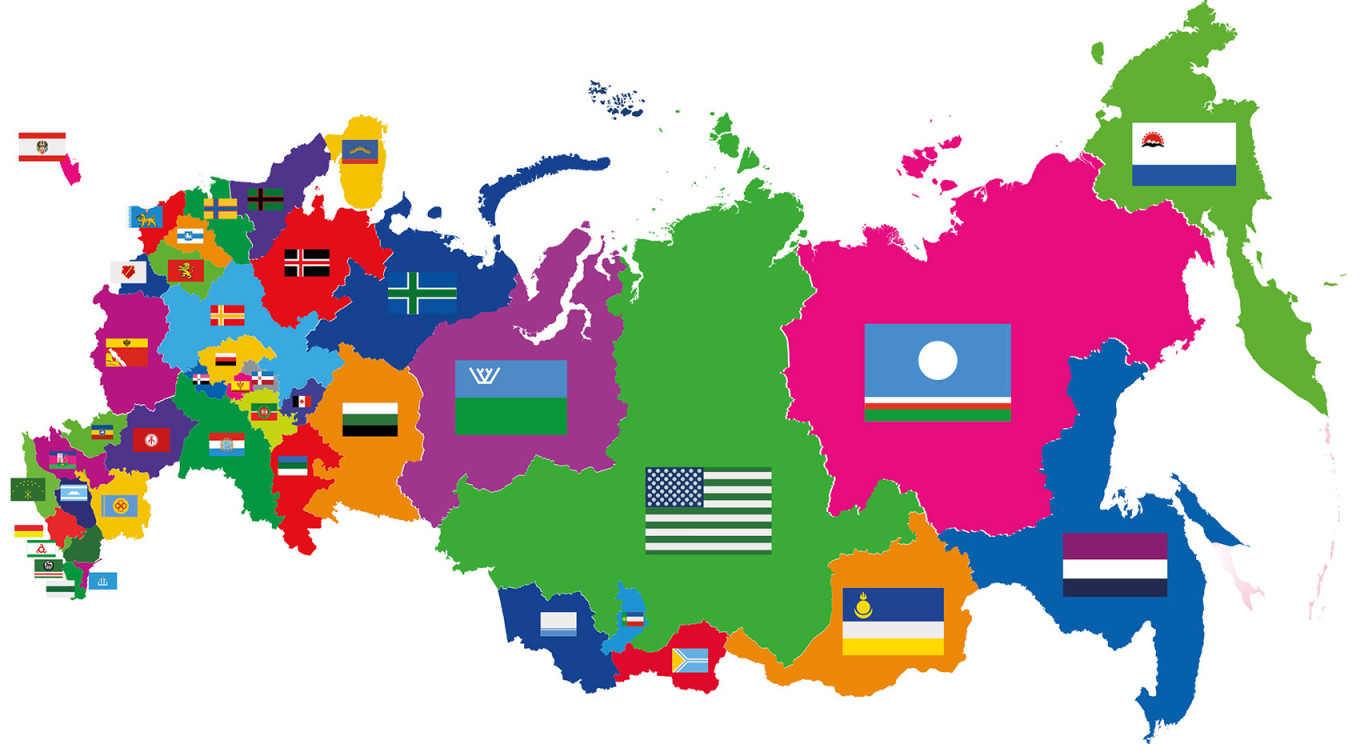
It is no wonder that the Dismemberers’ calls are popular. The Kremlin is fighting an imperialist war, and Russia still retains in many places the infrastructure and ideology of an old-fashioned empire. But even if Russia was teetering on the brink of collapse, we believe the Western policy community needs to be extra careful in approaching the feverish calls to dismantle the country.
Caution is necessary to avoid both the immense global suffering and tragicomic embarrassment this would cause. While the calls for dismemberment might be considered fringe, there is still a worrying trend where dismemberers are given platforms in centers of power, from think tanks to parliaments to universities.
To achieve tangible results, Western policymakers and academics need to support grassroots initiatives that have a robust understanding of their goals, rather than fall into the trap set by opportunists with little to no understanding of what decolonization entails.
Much of the decolonial drive led by Ponomaryov and his allies has little in common with the tangible decolonial movements of the last century. Succesful ones were largely grassroots and internationalist, and successfully relied on local working classes. Think of mass popular uprisings against the British in Kenya, or against the French in Algeria.
The Dismemberers, rather than drawing from the experiences of Africa and South Asia, are better described as inheritors of the ethnonationalist separatist movements of 20th-century Eastern Europe. They do not follow any specific ideology, and enjoy little to no popular support on the ground. By and large, they are operating through nationalist, at times explicitly far-right concepts.
The broader discourse on dismembering Russia is far from a unified movement. Before 2022, decolonizing Russia remained a niche subject for academics like Madina Tlostanova, who writes extensively on decolonization in the post-Soviet context.
The Dismemberers’ milieu today developed after the full-scale invasion and, unlike its precursors, is hungry for publicity. Yet it has little to no impact on geopolitics. No matter how many maps they draw, no drastic secessionist movements are operating in Russia. At the moment, there is next to nothing beyond a few raids within Russian territory that the Dismemberers have produced in terms of real, tangible results.
But what they want is to influence policy and academia, hence the vociferousness of its representatives who are currently given a platform everywhere from the EU Parliament to the Hudson Institute in Washington.
Take the aforementioned Forum of the Free Nations of Post-Russia which is mostly staffed by men in their 50s. The Forum is backed primarily by the EU Parliament’s European Conservatives and Reformists Group and MPs from the Polish Law and Justice (PiS) Party, as well as unnamed “Ukrainian businessmen” according to one of its organizers.
Beyond presenting a range of flags, the representatives of various potential breakaway states have shown little to no vision for seizing power or governing beyond claiming that they are “gathering forces” as Ponomaryov told The Washington Post.
During an event at the Hudson Institute, a representative of Ingria (the project for an independent St. Petersburg that gained some level of prominence amid the post-1991 resurgence of Russian nationalist and neo-pagan movements), while claiming that the necessary documents and plans exist, refused to demonstrate them publicly.
A representative of a proposed independent Novgorod, meanwhile, does have a plan. However, it is unorthodox — enhanced cooperation of the Novgorod Republic with the Hanseatic League, which has not existed since the end of the 15th century.
The Dismantelers seem aware of their geopolitical instrumentality and tailor their message to these potential donors. To the conservative Hudson Institute think tank in Washington, the Forum frequently invoked the “Chinese threat,” while assuring their American audience that the newborn nations would be allies to the West. But at its recent event in Kyoto, the Forum promoted Manchurian separatists and the transfer of the Kuril Islands to Japan — presumably, hoping to entice Japanese politicians into lending the Forum more support with the promise of regaining land Japan once controlled.
What is exceptionally notable is that most of the Forum’s members — as well as many Dismantlers beyond the Forum — recognize the lack of support they have on the ground. Ponomaryov dismissed any need for this “coming to power with bayonets.”
A similar sentiment is heard throughout the Dismanteller movement. The well-educated, Western-based activists often bemoan the very people they want to decolonize — claiming the latter are often infatuated with the Kremlin’s propaganda and have little to no understanding of what decolonization is and why they would need it.
This middle-class thinking leads to a hyperfocus on culture. The more materialistic side of Russian colonialism — the economic basis — is left largely unexamined. Thus, thinking about dismantling the physical basis of colonialism is sacrificed for discussing culture (which various actors understand completely differently) as the main source of Russian imperialism. This tends to introduce an insidious element of essentialism into the discourse — like the belief that Russians are a congenitally imperialist slave nation.
Thus, more and more (often regional) activists speak in increasingly primordial and essentialist terms and even align themselves with neo-Nazis. This strange convergence is the result of the fact that both the Russian Volunteer Corps (RVC) and some Dismantlers envision the formation of new ethnostates.
The RVC's views are best illustrated by the words of its founder, Denis “White Rex” Kapustin: “We all hoped that we — the white Aryans — would be fighting under the Swastika against some genetic degenerates… or that the enemy would be ethnic antifascists, huge noses, brown-skinned and all that.” The RVC, which titled its manifesto “Homo ethnicus,” advocates for a pure-blooded Russian ethnostate.
The Dismemberer movement’s pitfalls, of course, do not mean that decolonial activists are insincere. Various genuine grassroots movements have emerged from local activist circles that are trying to highlight issues and systemic problems that are present in Russia.
These groups vary in size, but all advocate for greater political and cultural autonomy for indigenous people (though visions vary from a truly federal Russia to new nation states). Their methods are usually limited to using the scarce tools that remain for the Russian opposition — agitation and propaganda via (mostly) digital means.
Their outlets — such as Asians of Russia, New Tuva, Voices of Nations held captive by Moscow — usually write about the most pressing issues in the colonized regions: the disproportionate impacts of mobilization, exploitation of local nature, economic ruin, and put these into the larger context of colonial systems of oppression.
They tend to be made up of younger people, often from underprivileged backgrounds, facing severe persecution at home. But while they might be more authentic than the old guard, they do not have their prominence. They are rarely invited to meetings and forums. When they are, they are often ignored in favor of more mainstream opposition. Moreover, most of their content is in Russian, rendering their work almost invisible beyond Russian-speaking social media.
On the other hand, the movement’s most prominent voices are often in English, since their primary audience is not the people they declaratively want to “liberate,” but Western academia and policymakers. The Dismemberers' feed this audience a steady diet of dehumanization, rooted in willful ignorance of the realities on the ground. For example, some anti-colonial scholars wrongly imply that there are no anti-war protests in Russia or abroad and that ethnic Russians as a whole are intrinsically unable to understand how to liberate the country.
From the perspective of Western policymakers, even if we look past unsavory right-wing rhetoric and shady characters, it is unclear how the radical Dismantlers will achieve their goal of dismembering Russia. Their focus on culture and aesthetics prevents the movement from addressing genuine, on-the-ground issues that should be at the forefront of discussion.
Questions like how to support newly decolonized populations, what will happen to Putinist local elites, how new states would govern themselves and how to avoid a civil war or even nuclear exchange are shrugged off. Most Dismantlers claim that they will figure these out post-separation.
So, when faced with questions concerning the life or death of many millions, the median answer of this movement can be summarized with a simple “I don’t give a f***.”
In conclusion, we suggest that the expert community exercise extreme caution in approaching the Dismantler movement as it seeks not to liberate but to replicate the old nationalist concepts. The cost of its goals being realized would be an immense loss of life and violence that would impact not just Russia but the wider world. Experts need to seek out genuine grassroots activists, with clear and unambiguous domestic support and a demonstrable connection to the people on the ground they claim to serve.
Everyone needs to remember that actual emancipatory work isn’t easy or glamorous. It doesn’t yield pretty maps and flags. Rather, it leads to burnout, sweat and tears. Yet if we truly want a better life for the people in the regions this is the work we need to promote, instead of holding up anti-Putin figures like Ponomaryov with little thought about what having them in power would mean.
Our opinions are ours alone and do not represent our employers, past or present.
A Message from The Moscow Times:
Dear readers,
We are facing unprecedented challenges. Russia's Prosecutor General's Office has designated The Moscow Times as an "undesirable" organization, criminalizing our work and putting our staff at risk of prosecution. This follows our earlier unjust labeling as a "foreign agent."
These actions are direct attempts to silence independent journalism in Russia. The authorities claim our work "discredits the decisions of the Russian leadership." We see things differently: we strive to provide accurate, unbiased reporting on Russia.
We, the journalists of The Moscow Times, refuse to be silenced. But to continue our work, we need your help.
Your support, no matter how small, makes a world of difference. If you can, please support us monthly starting from just $2. It's quick to set up, and every contribution makes a significant impact.
By supporting The Moscow Times, you're defending open, independent journalism in the face of repression. Thank you for standing with us.
Remind me later.



